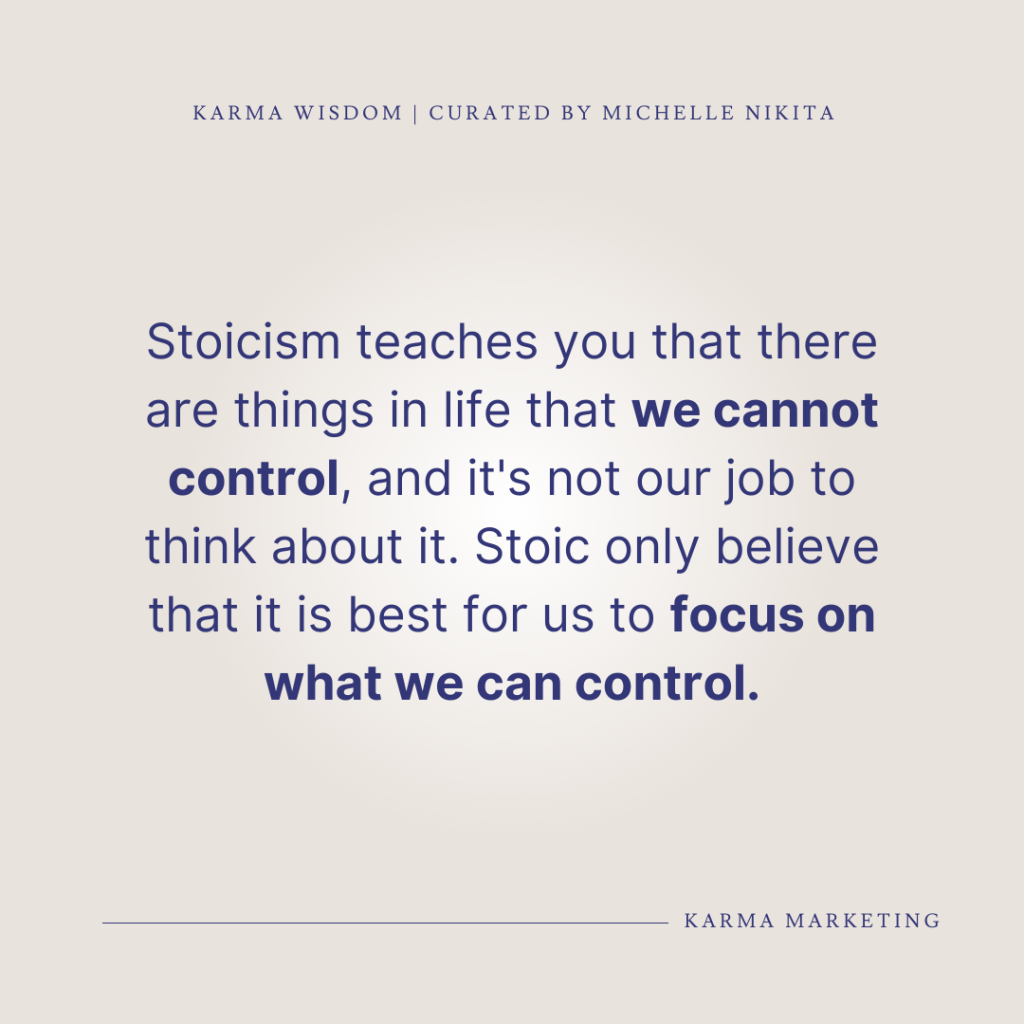Seeking happiness? You are not alone.
As human, we always face hard situations as we go. There are times where we feel like we have lost all hopes, feeling under pressure, like the world is against us, and that’s where we started to lose our happiness too. Different people have different ways to cope with these kinds of problem, and so does this one philosopher named Zeno of Cyprus, the one who created “Stoicism”, where it became a thought process for people until nowadays to face everyday challenges and problems.
What is Stoicism?
Stoicism is a philosophy that talks about how human can find happiness in life, act as calm as possible even in the most chaotic situation. Stoicism teaches how to maximizes positive emotions while reducing negative emotions, therefore, it can help human to live their best possible life. Furthermore, Stoicism believes that everything that happens in life is a string of cause and effect. Many great people in the history did not only understand Stoicism but also quoted, and admired this philosophy (ex: George Washington, Immanuel Kant, Theodore Roosevelt).

Here are the Four Virtues of Stoicism
Stoic (people who believe in Stoicism) are taught that they are four most essential values that can help us to achieve that happiness in life. These values are the basic things that are believed to be the core of having the possibility of living the best life.
| Virtue | What it means |
| Courage | Courage is facing daily challenges with clarity and integrity, the opposite of cowardice. This does not mean we have to eliminate fear, anxiety, or desires, yet it’s about making the right decision despite the fear, anxiety or desires we have within ourselves. |
| Temperance | Temperance is an ability to restrain ourselves from choosing short term satisfaction. It’s the ability to have self-discipline and self-control. This can help us to detach ourselves from dependency over addictions such as heavy drinking, smoking, social media, drugs, etc. |
| Justice | Justice is when we treat others with fairness, giving back to the community, to act respectful and generous. Justice in stoicism is the moral compass, to help other people as a whole not just to ourselves. |
| Wisdom | Wisdom is when we can tell the difference between what’s good, what’s not, and what’s indifferent. Stoics believes that there are not only good and bad things in life, but also things that is seen as neither good or bad but just simply exist (ex: money, fame, etc.) |

Getting Started: Nine Principles of Stoicism
- Acknowledge that all emotions come from within ourselves, not our surroundings, therefore we are the only ones who can control.
- Find someone we respect as a role model, therefore we can always stay honest and self-improve ourselves by looking at that person.
- Always recognize that there is a life after failure, that there is always a rainbow after the rain. It also teaches us to know that there will be no growth if there’s no failure.
- Apply our knowledge after we read something instead of just forget about it, apply what we’ve learned to our daily life, or spread it to our surroundings.
- Challenge ourselves to be brutally honest by asking “why are we feeling like this?”, dig deep to find the core of the problem that we will solve to improve ourselves.
- Reflect on what we spend the most time on, we shouldn’t be spending too much time on nothings such as social medias, video games, etc.
- Set a reminder to self that we weren’t made to procrastinate, procrastinating is our choice to be lazy. If we can do it now, why should we procrastinate?
- Put the phone away and be present. It doesn’t matter if it’s a family diner, or simply us doing our tasks, because phone is a big distraction.
- Remind ourselves that time is our most precious resource. We should do and try our best while we’re still alive, cause we never know when our time is going to end.

